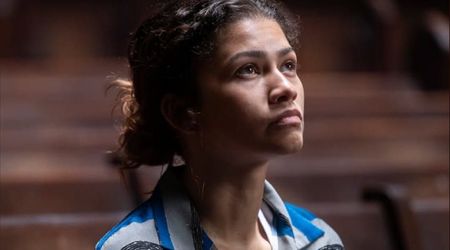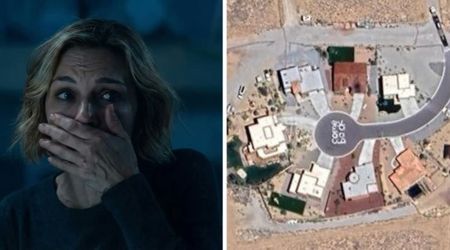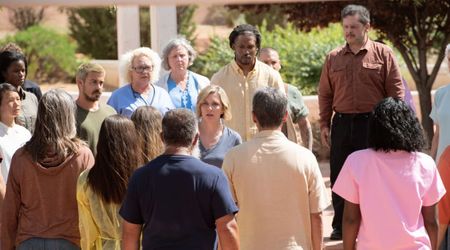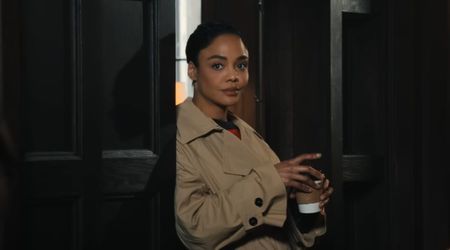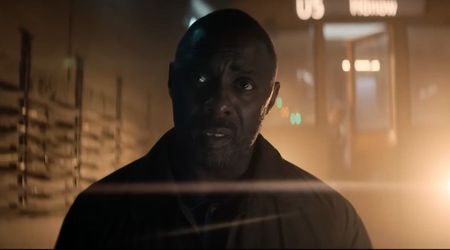‘Little Voice’: Shalini Bathina relates to Prisha’s struggle and ‘hustle’ to find herself as artist in her 20s

A wonderful thing about Apple TV+’s new musical drama ‘Little Voice’ is the rich variety of complicated, nuanced and beautiful characters it has in its fold. While the story focuses on Bess (Brittany O'Grady), a woman in her early twenties struggling to balance her life and her music, all characters in her periphery have a lot going on.
One that stands out among these is that of Prisha, an Indian-American musician who plays in an all-female Mariachi band. Played by Shalini Bathina, Prisha is Bess’ roommate, confidant and best friend. But Prisha’s life is as complicated as Bess'. She is a closeted gay woman, afraid to let her loving-yet-orthodox Indian parents find out.
When she gets attacked by homophobes, she finds more reasons to not come out to her parents. And despite Bess’ best efforts to convince her that they would understand her sexuality, Prisha remains staunch in her decision to not open up.
Bathina, a self-proclaimed “hopeless romantic”, speaking to MEA WorldWide (MEAWW), talked about the show, its beautiful music, her character, diaspora Indians, and more. According to her, Prisha is “learning to find her voice through a tumultuous time where she is navigating being in her 20s, her sexual identity and family dynamics, falling in love, and friendships.”
“I find Prisha to be very relatable. Her experience of being an artist through her 20s in the messy way that she does, her relationships, her hustle, her confidence, and lack of confidence, I connect with her on all of those levels,” said Bathina, about her connection with the character.
In episode 4, following the attack on her, we see Prisha’s parents and her go for an arranged marriage meet. While Bess looks uncomfortable at the idea of Prisha putting herself through this, the latter seems only content trying to delay marriage plans, almost as if she is certain of its inevitability. MEAWW asked Bathina if she felt this manner of conservatism (even if it's an imagined one in the show’s context so far) was prevalent in the diaspora South-Asian communities in the U.S.

Bathina said, “I wouldn’t say it’s a trend. I feel like that’s minimizing what it is; identity and values are not fads. Conservative culture has been customary in South Asian communities for a long time, but homosexuality has been prevalent across India throughout history, and it was not necessarily considered inferior until the 18th century during British colonial rule.”
She further said that this mindset of homophobia was indoctrinated as a part of “our culture and place of moral grounds: societal expectations of marriage, family, love,” but added, “I also think the nature of this question calls for me to generalize, but South-Asian families, especially the ones who migrate here, mostly come with those customs that they were brought up in when they lived in India, and it’s uncommon to see them adjust to a ‘western’ mindset when it comes to sexuality, identity, and ideas of love, let alone compared to the current Indian climate.”
“India has decriminalized homosexuality only 2 years ago,” Bathina pointed. “Many folks are still unlearning and this topic is so rarely discussed even within our own families. We can have friends who are part of the LGBTQIA+ community, but when it comes to our own homes, it can be taboo.”
This all depends on individual upbringing, societal expectations, class, culture, education, and a willingness to learn and adapt, she said, adding, “This is such an important topic and the more we write these stories and see them on mainstream television, the more we normalize this narrative.”
Talking about the show itself, Bathina said she “definitely struggled” in her 20s, “so personally, that’s what this show represents. It’s all about finding yourself as an artist and as a person, creating long-lasting relationships, falling in love, and constantly challenging yourself to keep pushing and learning.”
She pointed to its uniqueness and said, “I don’t remember a show with characters and storylines like this when I was in high school or college. So I think it’s incredible that we have this kind of representation and I only hope that people will resonate!”
She said that she and Jessie Nelson (one of the show’s co-creators) had a lot of conversations on the story, the character, the relationships between Prisha and Bess, with her parents, and Ananya. “We really got down to specifics and she directed me to get to the core of who Prisha is, but also worked with what I was able to bring to this role,” she said. “I think what I naturally brought to Prisha, the essence of me as a person, my connection and understanding of a South Asian family, my training as an actress, all really helped in developing the character.”
Bathina referred to ‘Little Voice’ as “such a hopeful show”. She said that people would find a connection to it regardless of who they are. “People will resonate with the characters’ struggles because these are real people, going through real issues. They hustle, they’re dedicated and they’re messy, so hopefully, it pulls on some heartstrings!”
New episodes of ‘Little Voice’ drop every Friday, only on Apple TV+.


